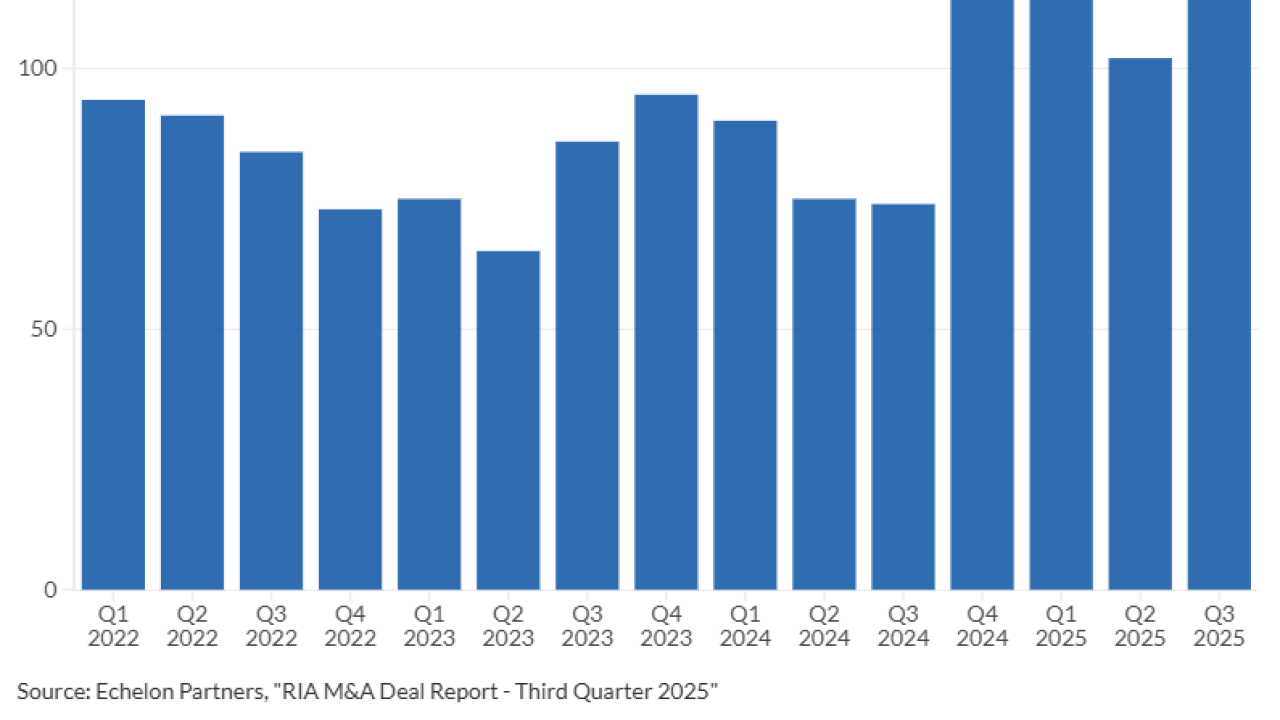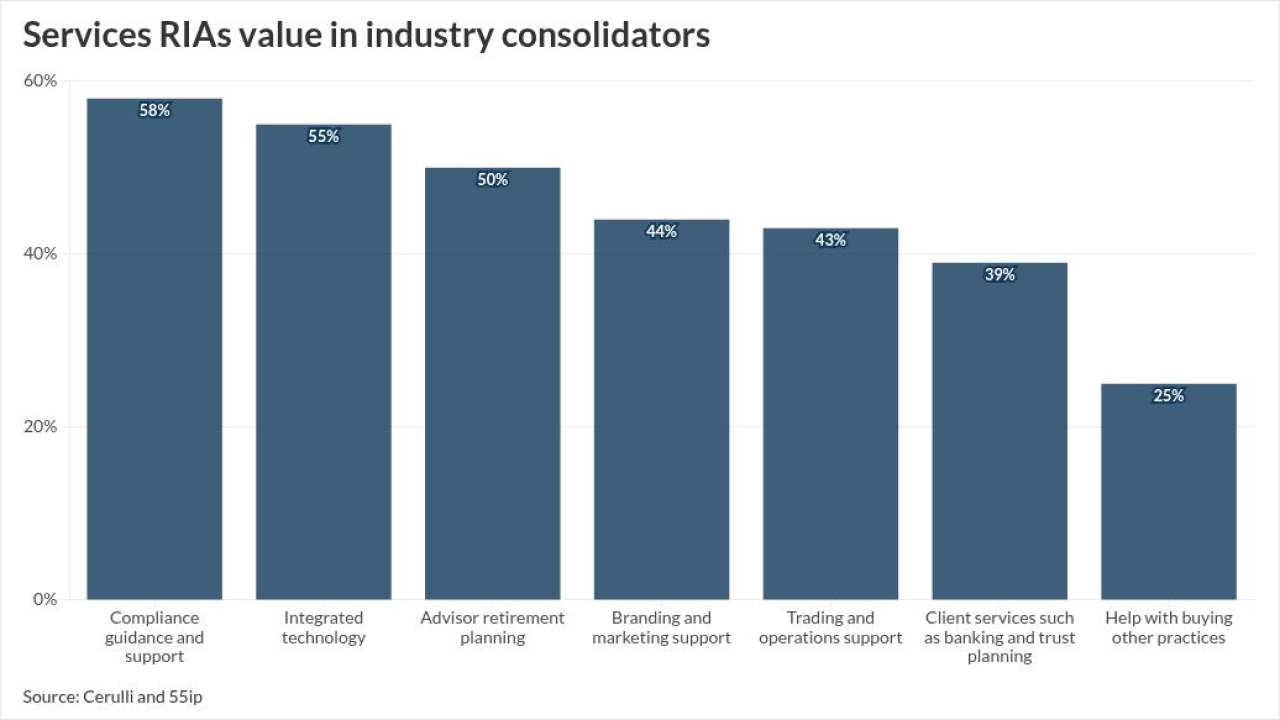They’ve just arrived, and they could be heading out the door.
Advisers who switched jobs last year were more likely to be female, manage more assets, and be younger than job hoppers in 2013, according to a Fidelity Clearing & Custody Solutions study completed near the end of last year and released this week.
Read more:
Why the change? Young advisers are placing greater priority on the direction and control of their careers, the study pointed out. While higher pay is still one of the top reasons to move, it has dropped in priority. Instead, motives such as improving /work life balance and gaining more control over work practices are cited more frequently as top reasons for leaving a previous firm.
"Young advisers want flexibility and to be treated like an entrepreneur," says Bob Oros, the head of Fidelity Clearing & Custody Solutions. "They don’t want to feel like they are punching the clock. They want to take charge of their career pathway."
About 22% of today's movers are Generation Y advisers. Gen Y refers to the generation born between 1980 and the early 1990's, who are currently about 22 to 36 years old. Two years ago, just 14% of people in the same age bracket were jumping ship, according to Fidelity research.

"The industry itself is not particularly getting younger," says Oros. "This means there is a significant shift in interest and motivations."
What’s more, more firms are losing young, talented people are also overseeing a large amount of capital. Forty-three percent of the advisers with more than $250 in AUM who switched firms were Gen Y advisers. In 2013, just 14% of Gen Y advisers were in that group.
The study found that job shifters tended to be female (14% compared with 8% in 2013) and had clients with higher assets ($829,000 vs. $673,000).
GAINING BARGAINING POWER
Rachel Moran, NexGen FPA's president elect and a financial adviser at RTD Financial Advisors, says the career path for new entrants was one of the frustrations early in her career. Times haven’t significantly changed.
“RIAs with a small number of staff sometimes find it hard to structure a more direct career path, unlike bigger brokerage firms,” Moran says. “Young advisers have to be more proactive in creating their own careers.”
And they are doing exactly that. With so many young advisers controlling so much in assets, they can wield greater bargaining power on the job.
"They are good researchers, more digitally savvy and definitely more proficient on social media,” Oros says. Few regret changing jobs, he adds.
Data from the study supports this: 67% of advisers who changed firms say they were satisfied after the move compared to only 8% saying they were satisfied prior to the move.
If firms want to retain their youthful talent, firm leaders should develop specific retention strategies, according to Fidelity:
1. Give advisers greater autonomy with clients and investment capabilities. Junior staff want the freedom to choose investing strategies that are most appropriate for clients, and want greater access to research and investment analysis.
2. Provide more explicit compensation information. Younger advisers should receive training and communication on firm compensation, initially and throughout their careers.
3. Create clear career paths. Younger advisers want a good sense of what their future will look like. Managers should be ready to answer questions such as, "how are you going to invest in me?"
4. Promote job satisfaction, particularly for top performers. Those at risk for moving are generally looking for more support. Consider offering them access to client referral programs and provide marketing and business development support to help them build their books.





